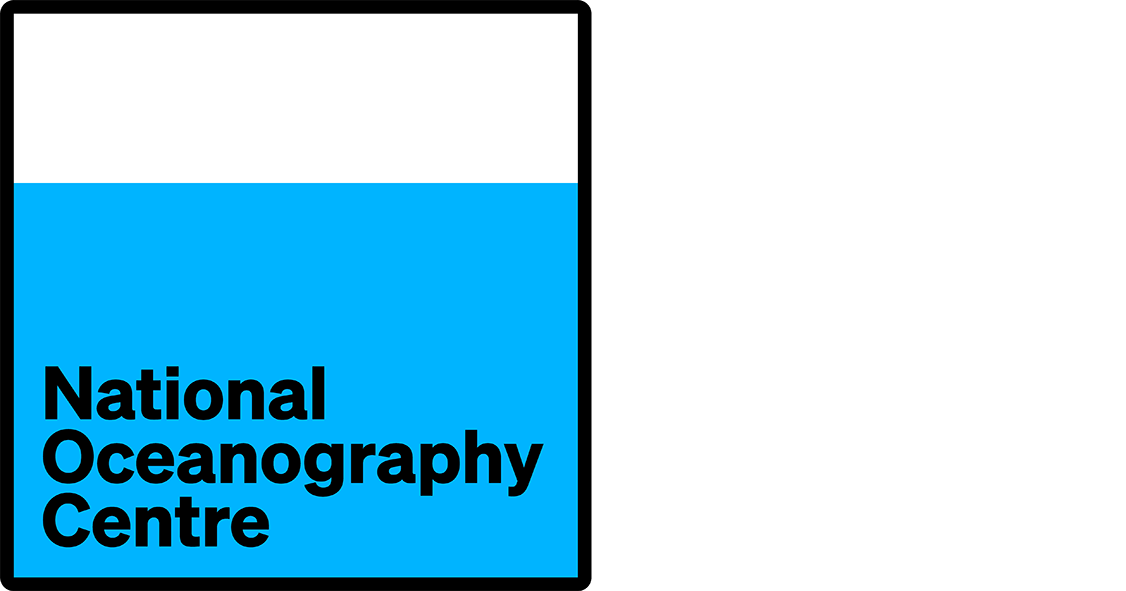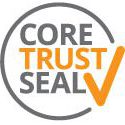Metadata Report for BODC Series Reference Number 1035102
Metadata Summary
Problem Reports
Data Access Policy
Narrative Documents
Project Information
Data Activity or Cruise Information
Fixed Station Information
BODC Quality Flags
SeaDataNet Quality Flags
Metadata Summary
Data Description |
|||||||||||||||||||||||||||||
|
|||||||||||||||||||||||||||||
Data Identifiers |
|||||||||||||||||||||||||||||
|
|||||||||||||||||||||||||||||
Time Co-ordinates(UT) |
|||||||||||||||||||||||||||||
|
|||||||||||||||||||||||||||||
Spatial Co-ordinates | |||||||||||||||||||||||||||||
|
|||||||||||||||||||||||||||||
Parameters |
|||||||||||||||||||||||||||||
|
|||||||||||||||||||||||||||||
|
|||||||||||||||||||||||||||||
Problem Reports
No Problem Report Found in the Database
FRV Scotia 0709S part b Data quality report
The attenuation and chlorophyll channels contain a significant proportion of noisy data.
These data should be used with caution.
Data Access Policy
Public domain data
These data have no specific confidentiality restrictions for users. However, users must acknowledge data sources as it is not ethical to publish data without proper attribution. Any publication or other output resulting from usage of the data should include an acknowledgment.
The recommended acknowledgment is
"This study uses data from the data source/organisation/programme, provided by the British Oceanographic Data Centre and funded by the funding body."
Narrative Documents
Instrument Description
CTD Unit and Auxiliary Sensors
A Sea-Bird Electronics SBE 25 Sealogger CTD unit was used. Water samples were collected with a SBE 35 Carousel, which was attached to the CTD frame. The CTD unit included the following sensors.
| Sensor | Manufacturer | Model | Serial number | Calibration date |
|---|---|---|---|---|
| Pressure | Sea-Bird | 0232 | 2003-02-19 | |
| Temperature | Sea-Bird | 1696 | 2009-02-03 | |
| Conductivity | Sea-Bird | 1454 | 2009-02-03 | |
| Fluorometer | WetLabs | ECO-FL | FLRTD-064 | 2003-11-08 |
| Transmissometer | Wet Labs | C-Star | CST-704DR | 2003-08-25 |
Sea-Bird SBE 25 SEALOGGER CTD
The SBE 25 SEALOGGER is a research-quality CTD profiling system used for coastal, estuarine and, can also be a practical option, for deep-water work. It is easily configured in the field for a wide range of auxiliary sensors. The SEALOGGER is self-powered, requires no conductive cable, and is designed for use up to 6800 meters (10,000 psia). It uses the SBE3F temperature and SBE4 conductivity sensors as well as having an external strain gauge pressure sensor. It provides pump-controlled T-C ducted flow, samples at 8 Hz, records internally and provides simultaneous real-time data via its built-in RS-232 interface.
The standard CTD unit comes with a plastic housing (rated to 600 m), although this can be replaced by aluminium housing for depths up to 6800 m.
Specifications
| Parameter | SBE 25 |
|---|---|
| Temperature | Range: -5 to +35 °C Accuracy: 0.002 °C Resolution: 0.0003 °C |
| Conductivity | Range: 0 to 7 S m-1 (0 to 70 mmho cm-1) Accuracy: 0.0003 S m-1 Resolution: 0.00004 S m-1 |
| Strain gauge pressure sensor | Range: 0 to 20, 100, 350, 600, 1000, 2000, 3500, 7000 metres (expressed in metres of deployment depth capability) Accuracy: 0.1% of full scale range Resolution: 0.015% of full scale range |
Options and accessories
Additional sensors can be attached to the CTD, including:
- Dissolved Oxygen (SBE 43 DO Sensor)
- pH (SBE 18 pH Sensor or SBE 27 pH/ORP Sensor)
- fluorescence
- radiance (PAR)
- light transmission
- optical backscatter (turbidity)
The SBE 5T titanium pump can be used in place of SBE 5P pump. Further details can be found in the manufacturer's SBE 25 instrument specification.
WETLabs ECO FLNTU fluorescence and turbidity sensor
The Environmental Characterization Optics (ECO) Fluorometer and Turbidity (FLNTU) sensor is a dual wavelength, single-angle instrument that simultaneously determines chlorophyll fluorescence and turbidity. It is easily integrated in CTD packages and provides a reliable turbidity measurement that is not affected by Colored Dissolved Organic Matter (CDOM) concentration.
The FLNTU can operate continuously or periodically and has two different types of connectors to output the data. There are 5 other models that operate the same way as this instrument but have slight differences, as stated below:
- FLNTU(RT) - has an analog an RS-232 serial output and operates continuously, when power is supplied
- FLNTU(RT)D - similar to the FLNTU(RT) but has a depth rating of 6000 m
- FLNTUB - has internal batteries for autonomous operation
- FLNTUS - has an integrated anti-fouling bio-wiper
- FLNTUSB - has the same characteristics as the FLNTUS but with internal batteries for autonomous operation
Specifications
| Temperature range | 0 to 30°C |
| Depth rating | 600 m (standard) 6000 m (deep) |
| Turbidity | |
| Wavelength | 700 nm |
| Sensitivity | 0.01 NTU |
| Typical range | 0.01 to 25 NTU |
| Fluorescence | |
| Wavelength | 470 nm (excitation), 695 nm (emission) |
| Sensitivity | 0.01 µg L-1 |
| Typical range | 0.01 to 50 µg L-1 |
| Linearity | 99% R2 |
Further details can be found in the manufacturer's specification sheet.
WETLabs C-Star transmissometer
This instrument is designed to measure beam transmittance by submersion or with an optional flow tube for pumped applications. It can be used in profiles, moorings or as part of an underway system.
Two models are available, a 25 cm pathlength, which can be built in aluminum or co-polymer, and a 10 cm pathlength with a plastic housing. Both have an analog output, but a digital model is also available.
This instrument has been updated to provide a high resolution RS232 data output, while maintaining the same design and characteristics.
Specifications
| Pathlength | 10 or 25 cm |
| Wavelength | 370, 470, 530 or 660 nm |
| Bandwidth | ~ 20 nm for wavelengths of 470, 530 and 660 nm ~ 10 to 12 nm for a wavelength of 370 nm |
| Temperature error | 0.02 % full scale °C-1 |
| Temperature range | 0 to 30°C |
| Rated depth | 600 m (plastic housing) 6000 m (aluminum housing) |
Further details are available in the manufacturer's specification sheet or user guide.
BODC Processing
Data were received by BODC in one ASCII format file that was subsequently split into 119 separate files, one for each CTD profile. The series were reformatted to the internal QXF format using BODC transfer function 340. Sample calibrations were applied to the conductivity data. The following table details mapping of variables to BODC parameter codes.
| Original parameter name | Original Units | Description | BODC Parameter Code | BODC Units | Comments |
|---|---|---|---|---|---|
| Pressure | Decibars | Pressure exerted by the water column | PRESPR01 | Decibars | |
| Temperature | °C | Temperature of the water column | TEMPST01 | °C | |
| Conductivity | mS cm -1 | Electrical conductivity of the water column calibrated against independent measurements | CNCLCCI1 | S m -1 | Conversion by transfer (mS cm -1 x 0.1). Sample calibrations applied by transfer. |
| Salinity | Salinity of the water column | PSALST01 | Dimensionless | Derived by transfer using UNESCO 1983 algorithm | |
| Fluorescence | µg l -1 | In-situ fluorescence | CPHLPS01 | mg m -3 | |
| Attenuation | volts | Transmissivity of the water column | ATTNMR01 | m-1 | |
| Oxygen | ml l-1 | Oxygen concentration | DOXYSU01 | µMoles l -1 | Conversion by transfer (ml l-1 x 44.66) |
| Oxygen saturation | % | Percentage oxygen saturation of the water column | OXYSZZ01 | % |
Following transfer to QXF, the data were screened using BODC's in-house visualisation software, EDSERPLO. Any data considered as suspect were flagged. Flags from the originator marking suspect data were retained during transfer.
Originator's Data Processing
Sampling Strategy
A total of 119 CTD casts were performed on FRV Scotia cruise 0709S part b (21 May 2009 - 01 June 2009) at locations along the shelf edge to the north and west of Scotland. The data were collected between 03:38 hours on 21 May 2009 and 11:07 hours on 01 June 2009.
Water samples were collected in order to obtain independent salinity and fluoresence measurements. The sample data were used to derive calibrations for the conductivity and fluoresence profiles collected by the CTD.
Data Processing
The raw CTD data files were processed through the SeaBird Electronics SeaSoft data processing software following standard procedures. The originators used in-house interactive visual display editing software to edit out individual spikes in the primary temperature and conductivity channels. In addition, a low-pass filter (Sy 1985) was applied to particularly noisy data. An ASCII file was generated for each CTD cast and all files from a cruise were concatenated into one ASCII file which was submitted to BODC.
Sy A., 1985. An alternative editing technique for oceanographic data. Deep Sea Research Part A: Oceanographic Research Papers, 32 (12), 1591-1599.
Field Calibrations
Independent salinity and fluoresence samples, obtained from the sample bottle and spread throughout the cruise, were used to calibrate the CTD conductivity and fluoresence data. Outlying points were discarded, and between 25 and 84 data points were used to derive the calibrations. The sample analyses yielded a straight line conductivity calibration of the form y = mx + c, where m = 0.999606 and c = 0.009397 (conductivity) and where m = 0.005222 and c = -0.783526 (fluoresence).
| Parameter | Value of m (y=mx+c) | Value of c (y=mx+c) | Equation |
|---|---|---|---|
| Conductivity | 0.999606 | 0.009397 | C(cal) = 0.999606C(obs) + 0.009397 |
| Fluoresence | 0.005222 | -0.783526 | C(cal) = 0.005222C(obs) - 0.783526 |
The calibrated and uncalibrated data were submitted to BODC, who applied the appropriate corrections.
Project Information
No Project Information held for the Series
Data Activity or Cruise Information
Cruise
| Cruise Name | 0709S |
| Departure Date | 2009-05-15 |
| Arrival Date | 2009-06-02 |
| Principal Scientist(s) | George Slesser (Marine Scotland Aberdeen Marine Laboratory) |
| Ship | FRV Scotia |
Complete Cruise Metadata Report is available here
Fixed Station Information
No Fixed Station Information held for the Series
BODC Quality Control Flags
The following single character qualifying flags may be associated with one or more individual parameters with a data cycle:
| Flag | Description |
|---|---|
| Blank | Unqualified |
| < | Below detection limit |
| > | In excess of quoted value |
| A | Taxonomic flag for affinis (aff.) |
| B | Beginning of CTD Down/Up Cast |
| C | Taxonomic flag for confer (cf.) |
| D | Thermometric depth |
| E | End of CTD Down/Up Cast |
| G | Non-taxonomic biological characteristic uncertainty |
| H | Extrapolated value |
| I | Taxonomic flag for single species (sp.) |
| K | Improbable value - unknown quality control source |
| L | Improbable value - originator's quality control |
| M | Improbable value - BODC quality control |
| N | Null value |
| O | Improbable value - user quality control |
| P | Trace/calm |
| Q | Indeterminate |
| R | Replacement value |
| S | Estimated value |
| T | Interpolated value |
| U | Uncalibrated |
| W | Control value |
| X | Excessive difference |
SeaDataNet Quality Control Flags
The following single character qualifying flags may be associated with one or more individual parameters with a data cycle:
| Flag | Description |
|---|---|
| 0 | no quality control |
| 1 | good value |
| 2 | probably good value |
| 3 | probably bad value |
| 4 | bad value |
| 5 | changed value |
| 6 | value below detection |
| 7 | value in excess |
| 8 | interpolated value |
| 9 | missing value |
| A | value phenomenon uncertain |
| B | nominal value |
| Q | value below limit of quantification |


